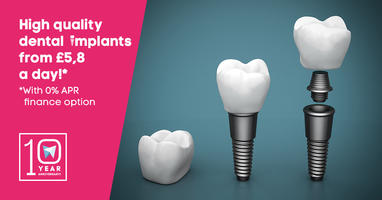A recent American study performed on cadavers (yikes!) has made implant placement, already an extremely routine and safe surgical procedure even safer. During the placement of dental implants, very few things can go wrong. But the face and mouth do contain a series of winding nerves, and sometimes, they can be hit if they are undetected. The problem is that while surgery must be carried out under anaesthesia, the damage to the nerve will not be apparent until a day or to after the procedure is carried out. By this time the damage to the nerve is usually irreversible, as nerve damage usually tends to be. This damage can result in a loss of feeling, complete numbness and loss of control of certain facial muscles, the tongue or parts of the jaw.
Addressing The Issue
These clever dentists have devised a way to make sure that this does not happen. The main object was the study of the mental nerve in cadavers, and to see where it winds in the jaw. The idea is that this nerve needs to be seen and the dental implants need to be placed in a way as to not touch this nerve. Usually, according to current regulations, an x-ray and a CT scan are required in order to place a dental implant. Sometimes, an x-ray is sufficient, but often, the two together will still not be quite adequate to place the mental nerve, as it is a very thin structure, and as it is made of nerve fiber, technology designed to inspect bone will not show you where its treacherous, winding path can be found.
This is why a new model of examination of a patient’s jaw is being advanced by the dentists involved in the study. The method involves a three layered examination system. Aside from the regular dental x-ray, a CBCT (Cone Beam Computerized Tomography) and a technology called STL (Stereolithographic Model) were employed in measuring the anterior loop of the mental nerve. By measuring the anterior loop, placement of the dental nerve becomes a breeze, and thus dental implants can be placed without the danger of ruining the nerve.

Findings
The research, performed on 12 human cadavers, has some interesting conclusions. The STL model has been proven to not be 100% accurate, however, the CBCT scan has provided for a perfect fit. Although the usefulness of the STL model of examination has been proven previously, this study suggest that caution should be employed when using this model of examination, and the findings provided by it are not always accurate. The makers of the study urge a CBCT scan to be performed for optimum proficiency.
What This Means To Patients
So what does a patient get out of this study?
Simply that a dental x-ray and CT or STL is not a 100% guarantee, and that a CBCT is needed to be able to measure the anterior loop of the mental nerve. If a patient wants to be absolutely sure that the nerves in his/her jaw are not disturbed, they should go and get a CBCT scan prior to their dental implant consultation. Most dental clinics do not have such a machine, and a hospital may need to be sought out in order to make this happen.
The question is, is it worth it?
A good dental implantologist will know when they are not sure and when they are based on radiographic evidence. Sometimes the nerve stands at an angle that it can be seen even with a regular dental x-ray. But a professional will know when they are not absolutely sure, and if a patient is willing to get a CBCT, that can help the success of the operation greatly. All in all, it is worth it to look into where you can get this examination done prior to your dental implant consultation, but if your dentists does not deem it necessary, then you will be spared the trouble of having to get one. But if it turns out that a CBCT scan will be needed, at least you will know where to get it done!
image: 1.

